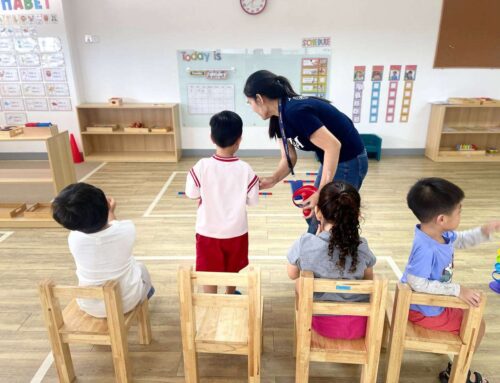Parents often ask how to strengthen little hands and growing bodies without turning playtime into “work.” At OrbRom Center, we focus on building fine and gross motor skills in preschoolers through short, engaging activities that fit naturally into a child’s day. This approach supports school readiness, self-care, and confidence—benefits families in Phnom Penh tell us they value most.
Why motor skills matter in preschool
Building fine and gross motor skills in preschoolers lays the groundwork for writing, dressing, feeding, and safe movement. Fine motor skills power pencil grasp, buttoning, and cutting. Gross motor skills drive balance, running, jumping, and core stability. When one area lags, we see frustration, avoidance of tasks, or “tired hands.” Early, playful practice prevents those patterns.
Simple fine-motor boosters you can do at home
-
Squish & pinch: Roll small balls and snakes from dough; pinch, poke, and cut. See our ideas for occupational therapy for children and scissor skills to build control and hand separation.
-
Tweezer treasure hunts: Move beads or pom-poms from one bowl to another with tongs.
-
Sticker lines and paths: Place stickers along a drawn road; peel-and-place builds pincer grasp and bilateral coordination.
-
Short, frequent practice: Two or three 5-minute bouts beat long sessions and keep motivation high for nature-loving, active kids (yes, even the animal-rescue-storybook crowd!).
Gross-motor play that builds strong bodies
-
Animal walks and obstacle courses: Bear crawls, crab walks, tunnels, cushions to step over—great for core and shoulder stability. Try these gross motor skill ideas.
-
Heavy-work moments: Carry groceries (one light item), push a laundry basket, or help move books—everyday proprioceptive activities calm the body and improve focus.
-
Movement + play themes: Pretend to be zookeepers building habitats with blocks, then hop like frogs between “ponds.” This blends imagination with strength, balance, and coordination.
Sensory-motor integration: the glue for learning
Sensory systems guide how children plan and execute movement. Calm, predictable input helps attention and confidence. Start with short bursts of sensory play, then slide into table tasks. If you’re unsure how to pace or grade difficulty, our OTs can tailor supports so progress feels smooth rather than overwhelming.
When to seek guided support
If your child avoids crayons, tires quickly, trips often, or struggles with buttons and zippers, a brief consultation can clarify next steps. Our Occupational Therapy team provides play-based plans, home carryover, and progress monitoring. Many families also explore our inclusive Preschool Program to practice skills with peers and routines that mirror classroom life.
Quick wins teachers and caregivers love
-
Offer short, rotating stations (pinch, cut, stick, stack).
-
Pair movement with language (“Hop to the lion hoop, then stack three blocks”).
-
Celebrate effort, not perfection—confidence fuels repetition, and repetition builds skill.
With the right mix of playful practice and expert guidance, building fine and gross motor skills in preschoolers becomes an enjoyable daily rhythm—supporting independence at home, smoother school days, and happier adventures.
We are the only Preschool specialized on children with special needs in PhnomPenh.
- Internationally qualified teachers
- Cambodia’s largest sensory room
- Outdoor swimming pool
- Covered outdoor playground
📞 Phone: 077.455.993
Telegram Link: https://t.me/OrbRom





